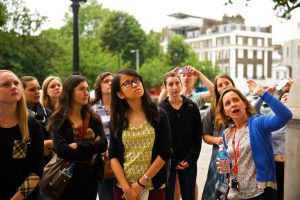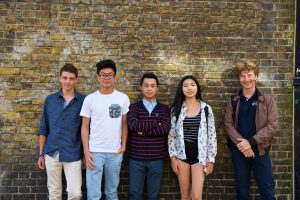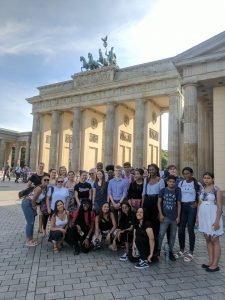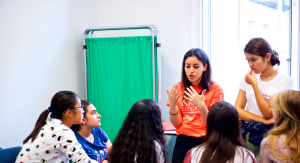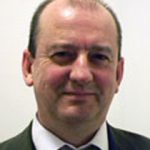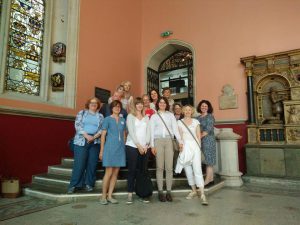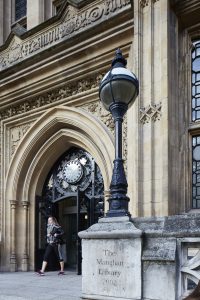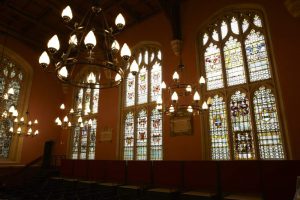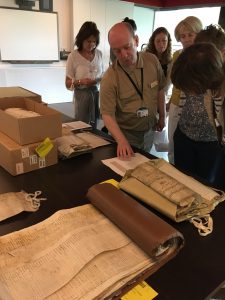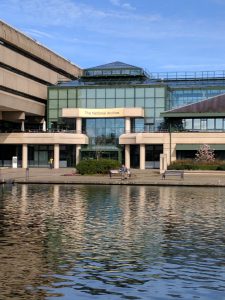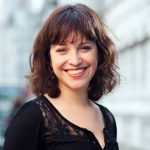 Dr Sarah Williamson, Director of Summer Programmes
Dr Sarah Williamson, Director of Summer Programmes
Cities, like universities, are the sum of their parts and London, like King’s, is very much a product of its people. London’s citizens have long built bits on, growing the city outwards and upwards not on any grid system, but expanding it organically from its medieval footprint. London is not a city that was built then the people moved in; they built it from the inside out.

That’s the kind of city London is. It has a mindset that resists definition and a momentum that evolves in ways that are too exciting to be corralled. Just how London has been shaped and honed has become even more apparent in the last 20 years. Glorious, majestic spaces, like Somerset House, have been reclaimed as public spaces, becoming areas for public thinking and doing. Those reclaimed public spaces now influence public discourse and from there the city self-defines its future development. A city is a thinking space and the university within the city is an ideas lab, where those thoughts are grouped together to become ideas and shaped into actions.
Everyone who comes to London comes knowing it has a life blood that its citizens both create and draw from. This is what makes it such a strong magnet for creative thinkers and therefore creative learners. To be connected with and submerged into the flow of the city was always an elemental component in the makeup of our academic summer programmes at King’s. London is our classroom not just because it is our location; it’s because it is our inspiration and definition. It’s an ever-greater co-contributor to the summer classes in our sector-leading programmes.
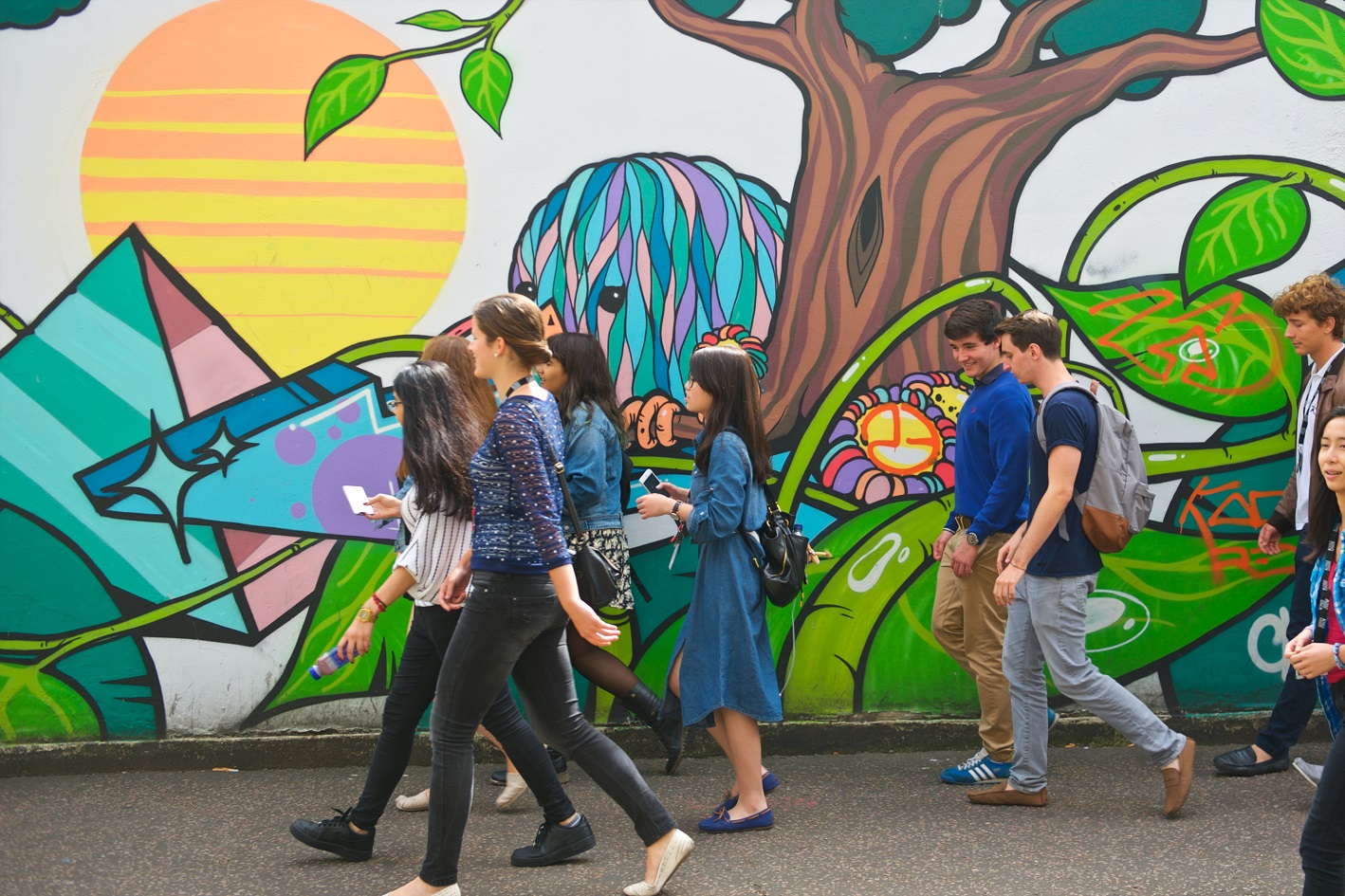
For those seeking a starting point more profound than a traditional tourist route, having a chance to explore the city through applied study is strongly attractive. No student focused seriously on their academic career doesn’t think very carefully about how they, as global citizens, as global thinkers, will need to understand and use the city in their future as they become workers in their fields. But how to do this if you live elsewhere? What can you do to count yourself amongst the number of Londoners making waves in the world if your postcode is usually well beyond the M25? One neat answer is to join a summer programme at King’s. Short courses, run on King’s campuses over the summer season give a compact but powerful injection of intellectual rigour and dynamic personal development embedded so firmly in London’s ecosystems that your credentials as a Londoner become as established as they do as a King’s alum.
All of our 1,800 summer alumni this year will have explored their subjects with the help of London. Academic excursions, guest speakers from across London’s industries enrich the London campus-delivered academic content of courses. From the Victoria & Albert Museum, historic Fleet Street or crowded Brixton. A diverse range of places and encounters await the summer student and life-long Londoner alike. London can be a gateway to the wider world through its London headquarters of global powerhouses like the UN Refugee Agency, teachers on our Human Rights undergraduate summer school. Our popular and long-standing summer module “Museum of London: Curating the City” with daily sessions at the museum led by its curators, is a passport behind the scenes of one of the capital’s most innovative museums. What do the collections—ranging from art to architecture, fashion to film, music to media, giant fatberg!—tell us about London over the last century? What sorts of histories do these collections tell? What stories do they leave untold? Who are the people choosing these collections and making particular stories public? What is the impact of their decisions on London’s present-day reputation as a centre of creativity and cultural exchange?
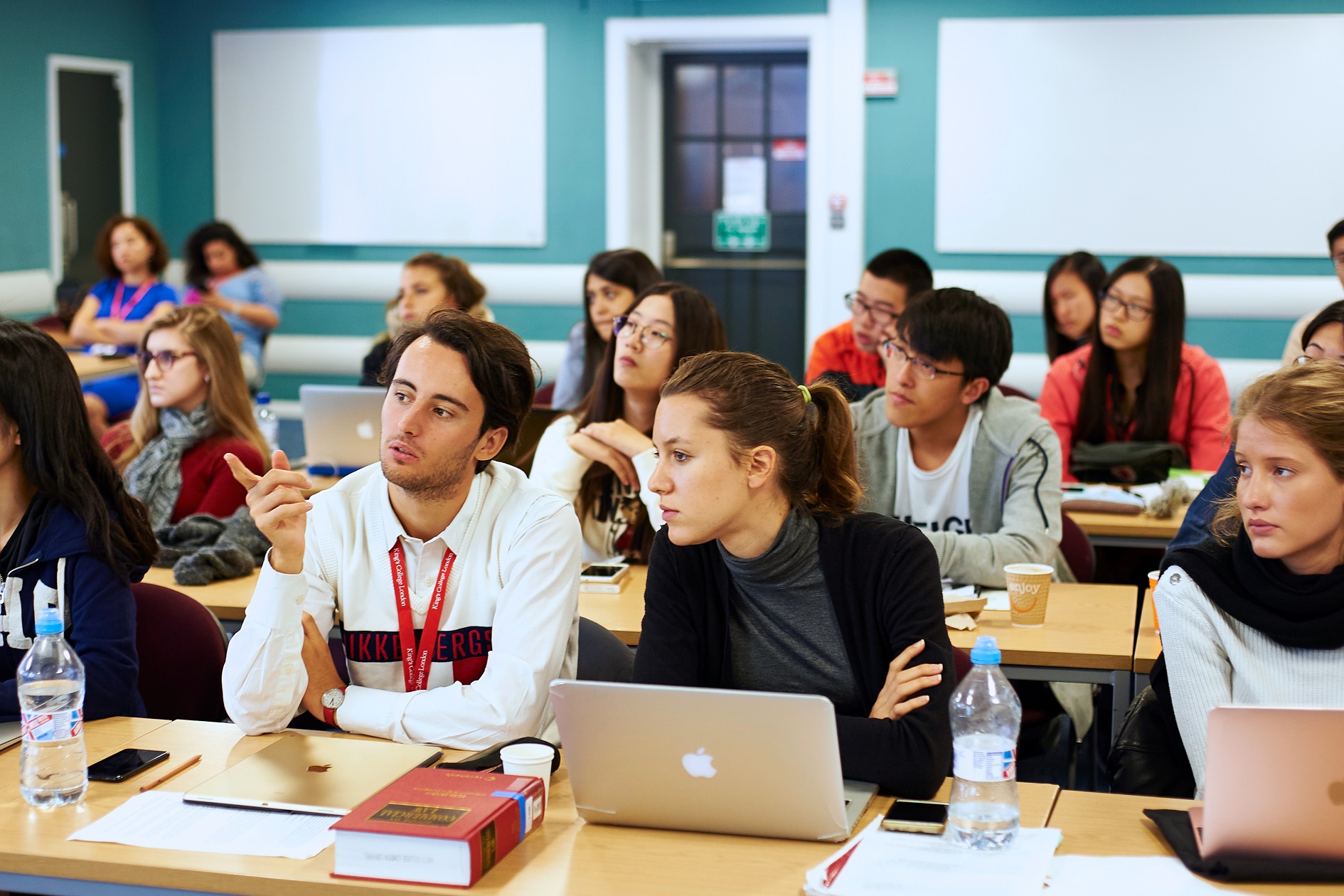 For an intellectually challenging, often assessed summer school, this is never about glorified tourism. With its highly international King’s summer student population from more than 50 countries, London connections need to be academically meaningful and relevant. Rather, it is the case that lecturers explore their subject through the prism of London in undergraduate-level courses such as London & Film, where London as a cinematic city, the divergent spaces of London, and the capital’s relationship to film genres are explored in turn. Students reflect on the relationship between London, the advent of moving images and the birth of the cinema industry; the cultural role of cinema within the capital through the strength of its institutions, among them Film London, the National Film Theatre and the British Film Institute. London is both, a ‘realist’ and ‘fantasy’ wonderland. The evolution of London (as relayed on film) as a thriving urban space marked by increased gentrification, cosmopolitanism and architectural redevelopment is considered as well as the restaging of London’s cityscape as the set for blockbuster cinema.
For an intellectually challenging, often assessed summer school, this is never about glorified tourism. With its highly international King’s summer student population from more than 50 countries, London connections need to be academically meaningful and relevant. Rather, it is the case that lecturers explore their subject through the prism of London in undergraduate-level courses such as London & Film, where London as a cinematic city, the divergent spaces of London, and the capital’s relationship to film genres are explored in turn. Students reflect on the relationship between London, the advent of moving images and the birth of the cinema industry; the cultural role of cinema within the capital through the strength of its institutions, among them Film London, the National Film Theatre and the British Film Institute. London is both, a ‘realist’ and ‘fantasy’ wonderland. The evolution of London (as relayed on film) as a thriving urban space marked by increased gentrification, cosmopolitanism and architectural redevelopment is considered as well as the restaging of London’s cityscape as the set for blockbuster cinema.
Inviting new audiences to King’s, Dr Alana Harris, Lecturer in Modern British History and convenor of a group looking specifically at the integration of London in the learning experience, is this year for the second time leading a King’s Summer Weekend course with The National Archives. This weekend course is for everyone who wants to expand their research into their family tree. It combines instruction on practical researching techniques with academic insight into how key historic events shape stories across generations. Those that are interested can read more about this in a recent King’s SummerTimes blog post written by Mark Pearsall, one of the course contributors from among The National Archives staff. He describes how this summer collaboration led to a podcast on the Public Record’s Office history in what is now King’s splendid Maughan Library. The city defines its history through its people’s stories. The university defines the city through its understanding of those stories and equips its citizens to continue to draw out their ideas of how the city will evolve in the future.
 Alongside the large King’s summer programmes, some of the biggest in Europe, a group of cultural intelligence courses offer invite student groups from King’s university partners to explore London’s people, institution and power in innovative ways. The rationale behind these courses is powerfully simple: they use the unique dynamism of the metropolis to empower students to reflect on their own agency and take steps to be empowered in their own lives back home. Long term Londoners come into the classroom and change perceptions. New Londoners soak up inspiration and ideas and carry a bit of London’s esprit de corps with them wherever they go next. We are the city and the city is us. #everybodywelcome #summeratkings
Alongside the large King’s summer programmes, some of the biggest in Europe, a group of cultural intelligence courses offer invite student groups from King’s university partners to explore London’s people, institution and power in innovative ways. The rationale behind these courses is powerfully simple: they use the unique dynamism of the metropolis to empower students to reflect on their own agency and take steps to be empowered in their own lives back home. Long term Londoners come into the classroom and change perceptions. New Londoners soak up inspiration and ideas and carry a bit of London’s esprit de corps with them wherever they go next. We are the city and the city is us. #everybodywelcome #summeratkings


